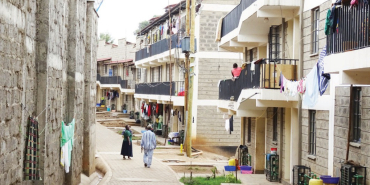Judiciary Exposes Network of Fraudulent Land Titles in Rising Scam Cases

Kenyan courts are increasingly revoking land titles obtained through illegal transfers made shortly after property owners die, as fraudsters exploit delays in succession processes and gaps in land registry systems.
Despite existing laws meant to protect property rights, a growing number of cases reveal how individuals unlawfully acquire land from deceased owners, often using forged documents or bypassing succession procedures. In Kisumu, the High Court recently upheld a magistrate’s ruling that cancelled Hirani Kanji Kurji’s title to land previously owned by the late James Romanus Dacha.
The court found that Kurji had failed to investigate the land’s history before purchasing it from Rose Opiyo, who had herself acquired the land without proper succession clearance. Justice Esther Asati ruled that procedural compliance does not validate a title based on an unlawful transfer, emphasising that Opiyo’s lack of legal authority over the property rendered the subsequent sale invalid. The transfer had taken place just months after Dacha’s death in 1992.
Similar rulings across the country have reinforced the position that titles stemming from fraud cannot be legitimised through formal processes. Justice Grace Kemei has affirmed the power of courts under the Land Registration Act to cancel such titles, while Justice Sila Munyao has cautioned buyers against relying solely on surface-level checks in a system vulnerable to manipulation.
In Meru, Duncan Njeru and Festus Murutani were convicted for fraudulently registering land belonging to the late Sabina Mwirichia. The crime was uncovered when Mwirichia’s daughter, Priscilla Mwirigi, noticed unknown individuals claiming ownership of the land. After presenting adjudication records proving her inheritance, Justice Lucy Gitari upheld the convictions, sentencing the two to fines and prison terms for falsifying ownership.
Financial institutions have also been affected. In Kericho, the Environment and Land Court nullified a title deed used by Nickson Kipkurui to secure a loan of Sh1.2 million. The land originally belonged to Kipkoech Tele, who died in 1987. Justice Munyao ruled that the transfer lacked proper succession and criticised the lender for insufficient due diligence, warning of the risks posed by Kenya’s compromised land registry.
Government efforts to address the crisis are ongoing. Lands Principal Secretary Nixon Korir told Parliament that the ministry is working to dismantle fraudulent networks operating within the registry and restore confidence in the system. However, land fraud remains widespread, especially in high-demand areas.
In Nakuru’s Ngata estate, once known for its serenity and prestige, land disputes have become frequent.
Fraudsters have been targeting vacant plots, presenting fake ownership documents, and claiming properties belonging to elderly residents and widows. In one instance, two individuals invaded 50 acres owned by Sian Enterprises, a company linked to former presidential aide Joshua Kulei. They erected structures and presented forged documents, which were later dismissed in court.
Another ongoing case involves a dispute over 40 acres worth Sh200 million between Kennedy Kipkech Chebii and Kenya Tourism Board director Sylas Kipkosgei Tochim. Chebii claims to have occupied the land since 1994, while Tochim says he received it as a gift in 2010. The matter remains before the courts.








Add new comment